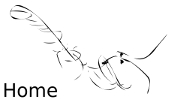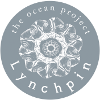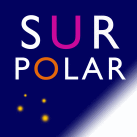Living Data:
Inclusion
2018 Conversations
Disclaimers, Copyrights and Citations
Conversations/Index 2010 2011 2012 2013 2014 2015 2016 2017 2018 2019 2020 2021 2022 2023 2024
"In [nature] we perceive the operation of a force which is mixed up with everything that exists
in the heavens or on earth; which pervades every atom,
rules the motions of animate and inanimate beings,
and is as sensible in the descent of a rain-drop as in the falls of Niagara;
in the weight of the air, as in the periods of the moon."
Scientist Mary Somerville, 1834,
On the Connection of the Physical Sciences.
 23 October 2018
23 October 2018
Deirdre Cobbinproposes a method to test if more people would prefer stories
where real emotions are involved.
 19 June 2018
19 June 2018
Scott (Whiskers) Fensonidentifies the diverse Indigenous languages as Nature's language,
and standard English as Consumer's language.
 11 May 2018
11 May 2018
Lesley Hughesidentifies as a citizen of the world.
During the workshop following the 2018 Boden Conference she reflects on what inspired her
to be a scientist and to study climate change and animal behaviour.
 11 May 2018
11 May 2018
Michael Depledge tells how he came to study relationships
between the health of environments and human health,
and to initiate an interdisciplinary practice of learning on country.
 11 May 2018
11 May 2018
Justine Shaw explains some surprising and predicted outcomes
from the 2018 Boden conference that she convened with Dana Bergstrom:
'Ecological Surprises and Rapid Collapse of Ecosystems in a Changing World'.
LIVING DATA UPDATE 2018 CURRENT
2018 LIVING DATA UPDATE
 Lisa Roberts message to Living Data Contributors and followers.
Lisa Roberts message to Living Data Contributors and followers.
Hello everyone,
I hope this finds you well.
2018 was challenging in ways that have changed how I progress with Living Data. The death of Sue Anderson, long-time mentor, friend, artist, inspiration, and coordinator of Lynchpin - the ocean projectdetermines me to continue as she did, to facilitate and document conversations across disciplines and cultures. I recognise her story-telling as an art aligned to traditional Indigenous practices, where knowledge that is vital for survival is embodied in the arts to pass down through the generations in surprising, diverse and memorable ways.
Although Sue lived most of her life in Tasmania, after arriving in her 20s from Scotland, it was only recently that she registered as an Australian citizen, but only after being Welcomed to Country in ceremony by a local Tasmanian Aboriginal Elder.
Sue and I shared the struggle of speaking about 'spirit' in our conversations with scientists, yet knowing the motivation for many of them is a deep feeling of connection that we identified as 'spirit' expressed through art.
From now on, more Indigenous voices will be heard in Living Data.
This year's presentation at University of Technology Sydney (UTS) for the Sydney Science Festival, contributes to the worldwide project of healing disconnects within and between peoples, and our lands and waterways. 'Lens on Health: Indigenous and Western Views', was further presented at the Healing Our Spirit World conference hosted by the University of Sydney at the ICC (International Convention Centre), Darling Harbour, with an animation about my own Aboriginal heritage: Lens on Health: Reading Mother Country
Special thanks to Megan Williams, and the other Indigenous scholars at UTS for conversations that open my mind to ways we may work personally and systemically, to heal the disconnects in Aboriginal Australia - physical, biological, spiritual.
This video says it all, Working with Aboriginal People:Enhancing Clinical Practice in Mental Health Care. Produced by a team of Indigenous health scholars and practitioners (including Megan), it comes with FREE online RESOURCES.These offer rich insights into what it means to be Indigenous, to learn your place and your purpose through practices that sustain healthy relationships between peoples and countries.
For me the stand-out message for health practitioners is to ask - "Not what is wrong, but what has happened to these people?" History matters, whatever our cultural backgrounds.
Impacts of colonisation persist through experience of disconnect within us, between us, and from our countries. Ignorance and fear of talking about these impacts is the topic of Read Robin Diangelo's new book, 'White Fragility: Why it's so hard for white people to talk about racism'. ROBIN DIANGELO explainshow we can think and do things differently to heal the rifts.
Thanks again for all our conversations that contribute to evolving and presenting Living Data.
Best wishes,
Lisa
Sydney. Friday December 15th 2018













